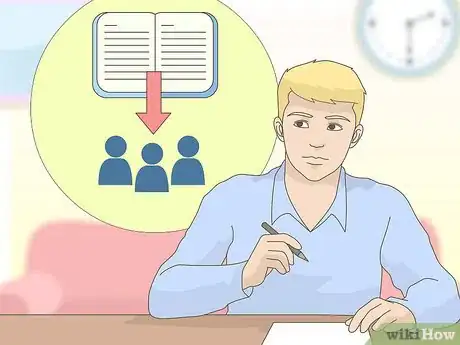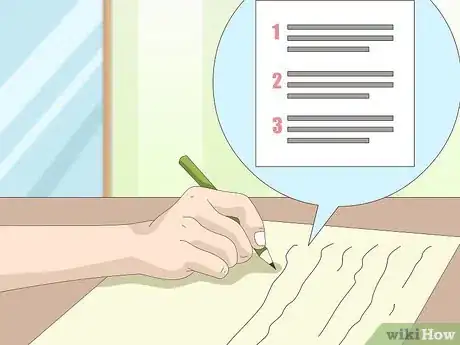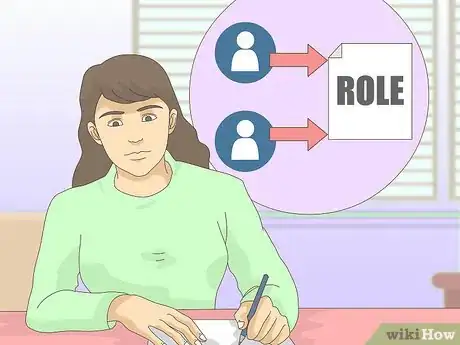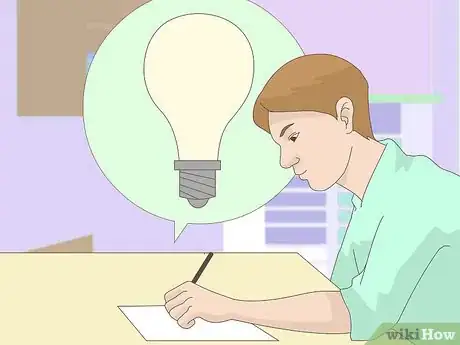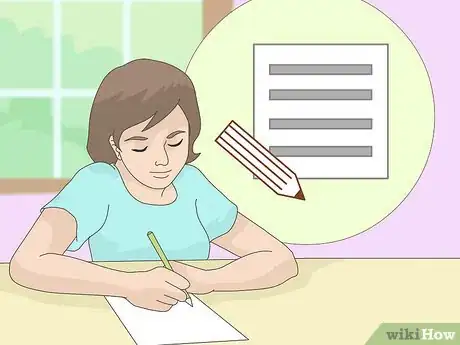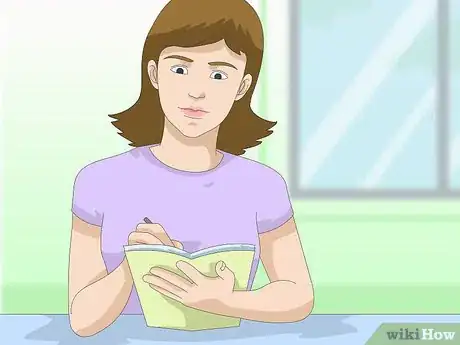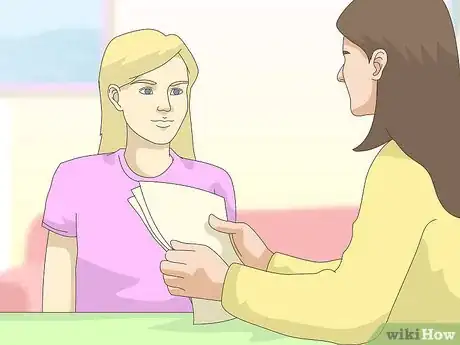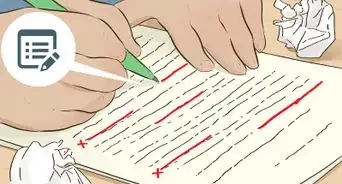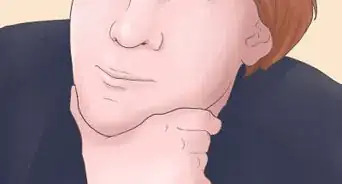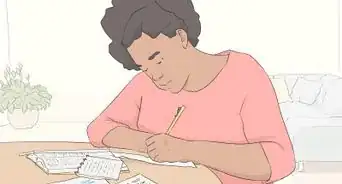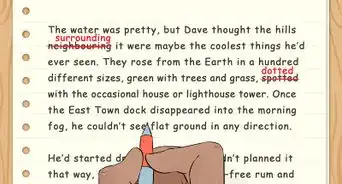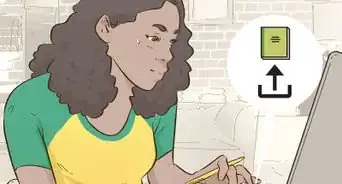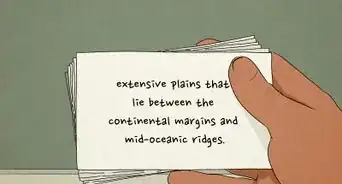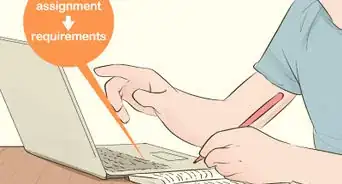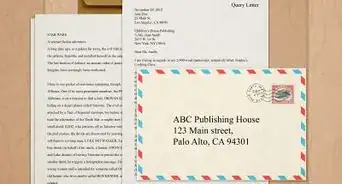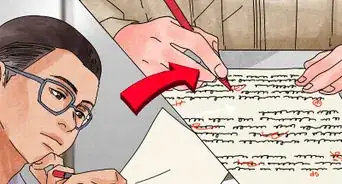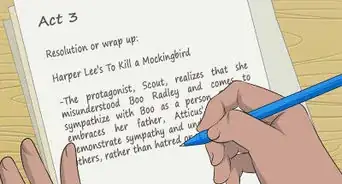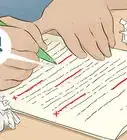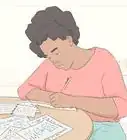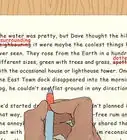This article was co-authored by Lydia Stevens. Lydia Stevens is the author of the Hellfire Series and the Ginger Davenport Escapades. She is a Developmental Editor and Writing Coach through her company "Creative Content Critiquing and Consulting." She also co-hosts a writing podcast on the craft of writing called "The REDink Writers." With over ten years of experience, she specializes in writing fantasy fiction, paranormal fiction, memoirs, and inspirational novels. Lydia holds a BA and MA in Creative Writing and English from Southern New Hampshire University.
This article has been viewed 186,481 times.
Planning is essential for writing any good story. You'll need to plan details such as the characters, setting and plot. While this task may seem difficult at first, it is actually relatively simple once you get started, and when you're done, you'll be ready to start writing.
Steps
-
1Brainstorm. Think of a story that will have an impact on the audience. For example, a story that may change the way that people think about a certain subject. The story could contain twists and turns and unexpected endings. Build up on that creative story. Start by thinking about what happened to you yesterday or what will happen in the future. Any subject will do.[1]
- You can draw inspiration from art and music when you are putting a story together. Many writers listen to music and get inspiration for their writing.
- Nature is an amazing source of inspiration. You can walk outside and appreciate it.
- If you can travel, go to someplace you have never been before.
-
2Think about your plot. Arrange the series of events in the order that you like most. Which one will happen first? What will the ending be? Know that your story need not start from something conventional, like brushing your teeth or going to work. You could start from something very sudden and tragic, such as somebody slapped you in the face or something. Write down all ideas of what will happen on a piece of paper.Advertisement
-
3Assign roles. Think of the fates of your characters (in relation to the story, of course). Will they suffer from a terrible disease? Or will they live a normal life after a tragic incident? Pen down all the characteristics of the characters on that sheet of paper. Remember, you have power over the characters because they are created by you, not others. And also, there are no general rules for creating a good character.
-
4Start getting your first words down on paper. Write a rough draft of your story, putting your ideas together. Never mind about minor mistakes like punctuation or grammar. Focus on your plot instead.
-
5Run through and edit. During run through just underline all minor mistakes so that you will not overlook it later. Also take note and edit of the parts that you don't like or feel not worthy or just plain confusing. After checking, start on the real thing.[2]
-
6Place the finishing touches on your story. Make sure everything is in a logical order, your characters are believable and help the story, and that everything sounds good.
-
7Share it. Bring it to your family or friends to read and ask what they think about it. Make any changes that they suggest. When you're ready, you can write a final draft with these suggestions in mind.
Community Q&A
-
QuestionHow do I get ideas for a good plot for an "end of the world" themed story?
 Community AnswerFigure out what caused the apocalyptic environment, and think of the effect this would have on the setting, the conflicts that this would cause the characters to have, and the struggles they would face in this setting. Reference books and movies that relate to this - zombies, cataclysmic natural disasters, and alien invasions - and come up with your own unique take on the situation.
Community AnswerFigure out what caused the apocalyptic environment, and think of the effect this would have on the setting, the conflicts that this would cause the characters to have, and the struggles they would face in this setting. Reference books and movies that relate to this - zombies, cataclysmic natural disasters, and alien invasions - and come up with your own unique take on the situation. -
QuestionShould I use a mind map to plan my story or just jot down notes?
 Community AnswerIt depends how your mind works. Try a sample of both, then later, go back and see which one makes more sense to go forward with. You will soon find which way works better for your creativity.
Community AnswerIt depends how your mind works. Try a sample of both, then later, go back and see which one makes more sense to go forward with. You will soon find which way works better for your creativity. -
QuestionShould I make a series of books before I share the first one?
 Community AnswerYou don't have to write the whole series before sharing the first one. However, you should have a detailed plan of each book or an idea of what's going to happen in each book. If you go ahead with just a general idea for each following book, make sure those ideas are general enough to last a whole book or you might end up dropping the story.
Community AnswerYou don't have to write the whole series before sharing the first one. However, you should have a detailed plan of each book or an idea of what's going to happen in each book. If you go ahead with just a general idea for each following book, make sure those ideas are general enough to last a whole book or you might end up dropping the story.
